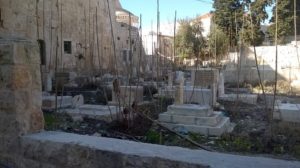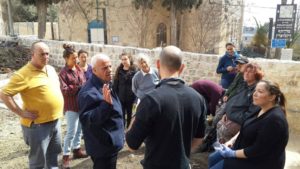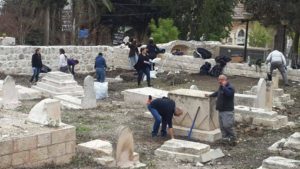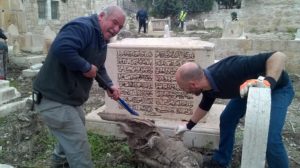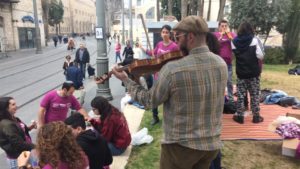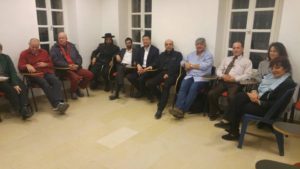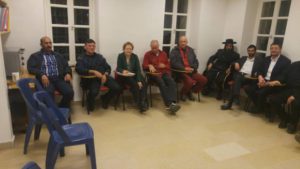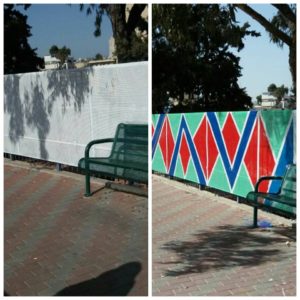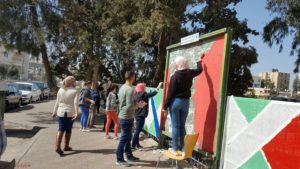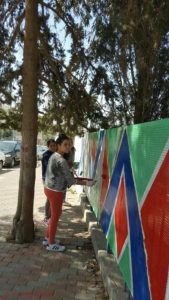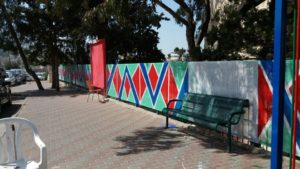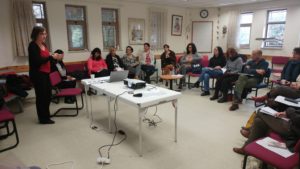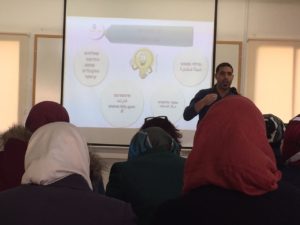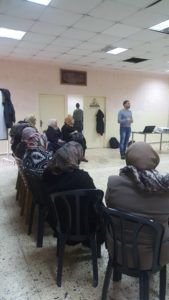Window to Mount Zion – Cleaning the Dejani Cemetery
Adjacent to the David’s Tomb complex is the Dajani cemetery. It is an historic Muslim cemetery where the Dajani family, a well-known, well-established Jerusalem family, buried its family members. This includes a former Mayor of Jerusalem and other VIPs.
For a long time this cemetery stood locked and neglected, and was an eyesore to anyone (some 2 million tourists (!) per year) who visited the area of David’s Tomb.
Until Window to Mount Zion decided to to something. Window to Mount Zion organized a unique clean-up mission, together with our volunteers, the Jerusalem Municipality, the Israel Police, and the Dajani family. Thanks to our volunteers, all the different bodies came together for the project.
The clean-up took place on Monday, March 20. They weeded, cleaned up, and cleared away tree trunks and other unnecessary vegetation and garbage that had sprouted and multiplied over the years.
Eran, one of the volunteers, had a special experience. Together with a descendant of the Dajani family, he cleaned up the area around the grave of Abd el-Kadr Tahbub, who was the supreme judge of Jerusalem. Together, they also read the special poem that was written on his gravestone.
Work in the cemetery isn’t finished. In the future, we also seek to map the cemetery and fix some of the gravestones that have been damaged over the years.
Here’s the Facebook post (in Hebrew) about the work:
Many thanks to all the partners who helped take part in this special cleanup – the Jerusalem Municipality, Israel Police, the Dajani family, of course the volunteers. Here’s to additional fruitful, intercultural and inter-religious partnerships in the future.
Many thanks to the Jerusalem Foundation for their continuing support of our efforts to promote tolerance in Jerusalem.

